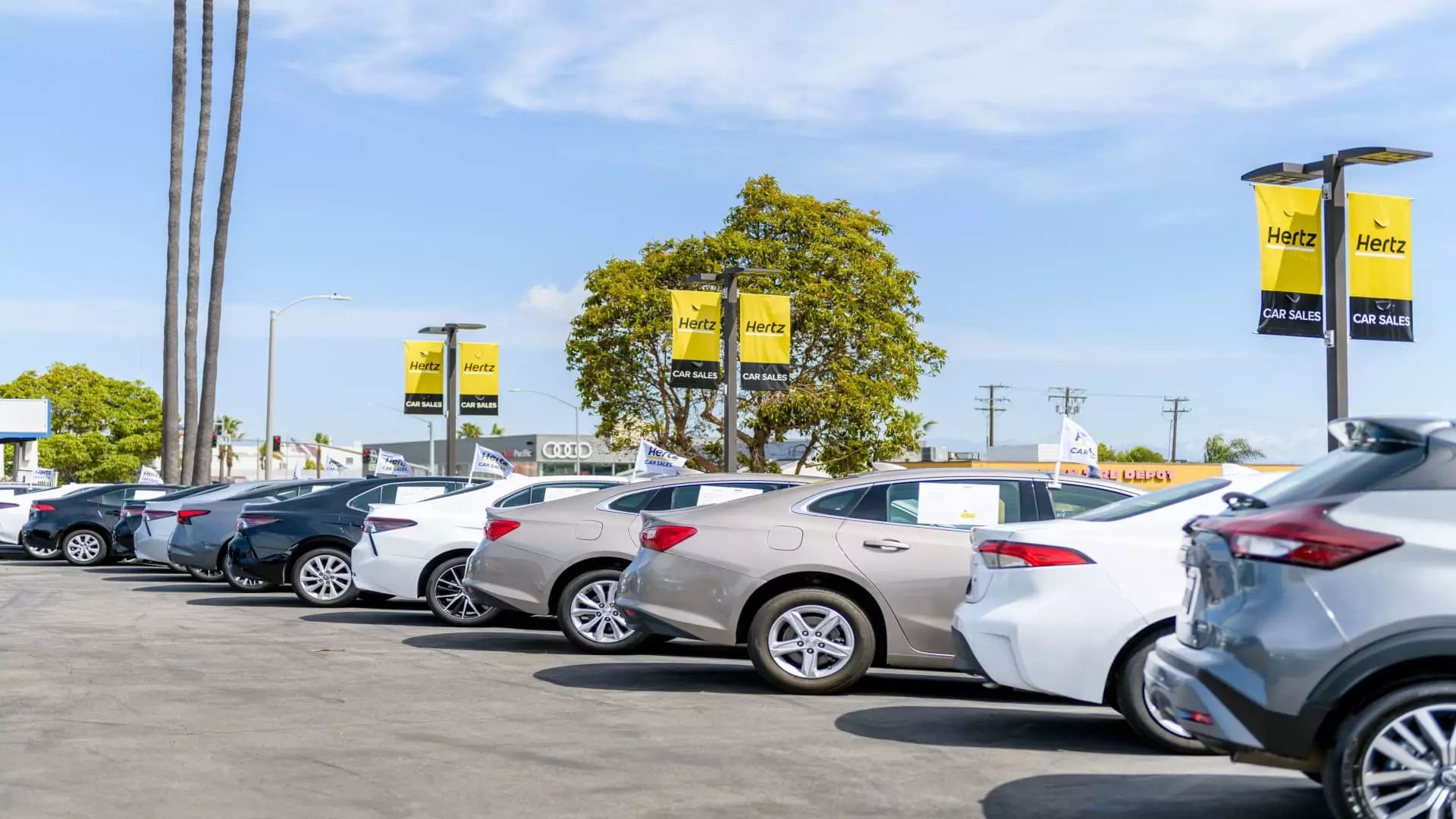Hertz’s recent announcement to partner with Amazon Autos signifies more than just a tactical shift; it represents a daring attempt to reshape how consumers acquire vehicles in an increasingly digital world. For decades, the traditional car dealership model has maintained a sales-driven, often frustrating customer experience fraught with high-pressure tactics, opaque pricing, and limited online engagement. Hertz, a company historically synonymous with car rentals, evidently sees the digital marketplace as a fertile ground for its evolution into a multi-faceted auto retailer. This partnership aims to leverage the vast reach and trusted platform of Amazon to democratize access to used vehicles, allowing consumers to browse, examine, and even purchase cars entirely online.
What makes this move compelling is Hertz’s recognition of changing consumer behavior. Today’s buyers demand convenience, transparency, and speed—qualities the traditional dealership often struggles to deliver. By offering used cars from recognizable brands like Ford, Toyota, Chevrolet, and Nissan directly through Amazon Autos, Hertz seeks to bridge the gap between the online shopping habits fostered by e-commerce giants and the physical nature of car ownership. The ability for customers to complete paperwork digitally, schedule pickups, and avoid the typical dealership hassles signals a significant shift in the automobile retail landscape. It challenges longstanding notions that buying a car must involve aggressive sales tactics and in-person negotiations.
Hertz’s strategy, however, isn’t merely about convenience. It’s a calculated move to diversify revenue streams and bolster profitability—an urgent necessity given the company’s tumultuous history. Emerging from bankruptcy and recovering from a failed EV strategy, Hertz’s renewed focus on retail and digital expansion is a testament to their willingness to embrace disruptive models. In this context, their alliance with Amazon, a behemoth of online commerce, positions them at the forefront of a potential industry transformation. This is more than a partnership; it is a bold statement that traditional car sales must adapt or fade away.
The Risks and Rewards of an Ambitious Expansion
Yet, this foray into online used vehicle sales is fraught with inherent risks. The car-buying process is complex, often laden with misconceptions, and requires trust—elements that are difficult to foster solely through a digital interface. Despite the convenience promised, many consumers still prefer the tactile experience of inspecting a vehicle firsthand, speaking with a knowledgeable salesperson, and negotiating face-to-face. Hertz’s move to digitize the process might risk alienating traditional buyers who value personalized service and physical inspection.
Furthermore, this e-commerce approach could heighten competition within the used car market, a sector already overcrowded with online listings, private sellers, and established dealerships ramping up their digital presence. Amazon’s involvement grants Hertz exposure to a vast customer base, but it also exposes the company to the unpredictable tides of online retail trends and consumer preferences. The success of this venture hinges on whether buyers are willing to embrace the convenience of ordering a used vehicle online, trusting the vehicle’s quality and the transaction’s security.
From a broader economic perspective, Hertz’s gamble appears to be a strategic move to revitalize its brand and find new sources of income. The traditional rental sector has been battered by pandemic disruptions, and the company’s latest quarterly results show signs of recovery—particularly in retail vehicle sales and programs like Rent2Buy. By expanding into online vehicle sales, Hertz aims to capitalize on the rising popularity of digital transactions and the shifting preferences of younger, tech-savvy consumers.
However, skepticism remains warranted. The automotive retail ecosystem is stubbornly resistant to change; many have failed to replicate brick-and-mortar success online. Hertz’s partnership with Amazon, while promising, is not a guarantee of sustained profitability. It must navigate logistical, regulatory, and quality control challenges that arise from treating used cars almost as commodities in a marketplace reliant on trust and long-term customer relationships.
A Calculated Leap Toward Market Relevance
In essence, Hertz’s venture into online used vehicle sales signifies a calculated and ambitious step toward market relevance. It reflects a recognition that future revenue streams lie in digital innovations, but not without significant hurdles. The company’s willingness to experiment demonstrates a pragmatic acknowledgment that the automotive industry must evolve beyond the traditional dealership model. It also signals a broader industry trend where tech giants like Amazon are increasingly carving out roles in automotive commerce, challenging established industry players to adapt to the new reality or risk obsolescence.
Despite potential setbacks, this strategic pivot sparks a necessary conversation about the future of vehicle sales and ownership. It underscores the importance of integrating technology with traditional industries, fostering transparency, and meeting consumers where they are—online. Hertz’s bold move might be the push needed to accelerate change, but only if they manage to balance innovation with trust, convenience with quality, and scale with customer satisfaction.
Ultimately, this initiative could redefine the automotive retail landscape—either as a groundbreaking success that sets new standards or as a cautionary tale of the risks inherent in rapid digital transformation.


Leave a Reply